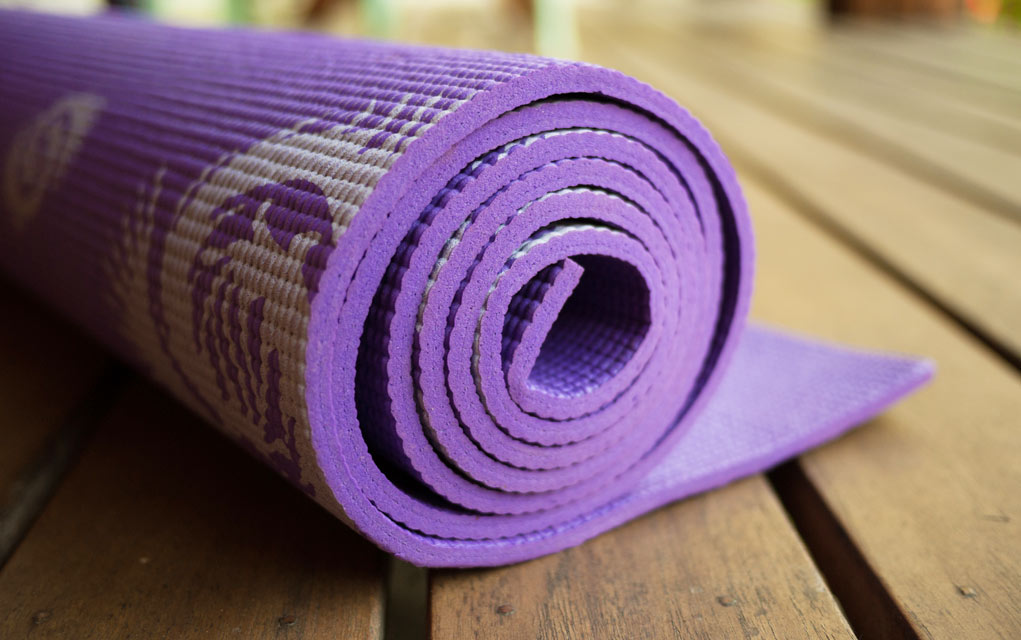8 Shortcuts to Desire and Motivation
Many people ask how to develop a better connection to their desires, passions, and major life interests. These people feel bored, checked out, and unclear about what goals to pursue. Well, here are some of the best “shortcuts” to help you figure out what drives you.
1. Embrace the New
My #1 recommendation is to embrace the new. Do anything and everything if it’s new to you. The benefit is that you’ll give your brain a lot of experiences to compare and contrast. This will help you evolve your tastes and refine your experiential palate.
I love new experiences and will often say yes to a new invitation even if I don’t expect to like it that much. If it seems new enough, then even if I don’t like it, it may still help me refine my tastes in some fashion.
Clarity comes from contrast, so if you want more clarity, invite more contrast by embracing and accepting new experiences. This is especially crucial for people in their teens and 20s. Put the word out to your social circle that you’re open to trying things you’ve never done before, and ask for some invites. Say yes to some of those invitations.
Your brain learns from experience. If you lack experience, then how can your brain know its most important preferences? Of course it cannot — you need to train it more. How are you supposed to discover your favorite foods if you do the equivalent of eating the same food every day?
2. Turn Towards Fear
Irrational fear often blocks people from living interesting lives. See if you can identify a major fear that’s irrational, meaning that you wouldn’t be in any real danger if you acted in spite of that fear. Then make a serious commitment to face that head-on until you’ve mastered it, even if it takes 10 years.
Public speaking was a biggie for me. I made a point of seriously tackling that starting around 2004. It’s been wonderful to transform such an irrational and pointless fear into a confident skill that opens many doors. I also did a lot of relationship and sexuality exploration in the past several years to expand my comfort zone and refine my social interests more.
Keep deliberately throwing yourself into situations that feel uncomfortable to you, and you’ll see your comfort zone expand. As the fear diminishes, you’ll feel much freer than you did before. You’ll have more options available to you. You won’t have to decline something just because you’re afraid of it.
Another benefit of facing your fear is that you’ll attract other people who are doing the same. You’ll make better, stronger, more interesting friends. People who avoid their fears are usually very boring to socialize with — they don’t make very good friends because they stay inside their comfort zones. Such people aren’t very stimulating, and they won’t help you grow much. So if you allow yourself to become that kind of lifeless person, the more interesting people will tend to shun you because you offer them little or no stimulation and growth. Begin facing your fears, and the opposite will happen.
Decide to master your irrational fears instead of letting them control you. This especially includes the fear of failure and the fear of rejection. Failure and rejection are normal parts of life; if you try to avoid them, you’ll also avoid living an interesting life.
3. Use Total Immersion Liberally
Many people just dabble in their interests, but the most juicy parts of life usually won’t reveal themselves unless you go well beyond the surface level.
Instead of trying to balance your life on a daily basis — which can lead to a very boring and superficial existence — allow yourself to fully obsess over your interests now and then.
To use a poker analogy, stop calling so much. Either raise or fold. Pursue an interest like it’s the only thing that matters in life, or drop it and ignore it until it does spark enough interest. Get out of that gray zone in the middle.
The people I know who tend to be the most motivated seem to completely throw themselves into whatever interests them. They live in a world of 0% or 100%, not 50%. Life is more binary for them; it’s full of yeses and nos and very few maybes.
When was the last time you pursued one singular interest intensively for a full day or more, to the exclusion of virtually everything else but the essentials? Life should be filled with days like that — a single focus carrying you through from dawn till dusk.
I even do this with small things, in ways that other people might find ridiculous, but I find this all-out immersion so much more motivating than dabbling or doing a half-assed job. For instance, I’ll sometimes take a full day or two to conduct exhaustive online research for a major purchase till I feel that I’m practically an expert on it.
4. Drop Pointless Obligations
If you want the time and energy to pursue what does interest you, then say no to all the things that don’t interest you enough to pursue them at 100% capacity. Drop that pointless clutter from your life for good, and never look back.
For most of my life, whenever the holidays would come up, I used to dread buying gifts for other people. I’d usually postpone it till Dec 23rd or 24th. I was never much good at it, and I only did it to please other people. I could see that this was never going to be a 100% interest. So some years ago, I told everyone I was dropping this annual ritual. People accepted this about me — it wasn’t such a big deal at all. Now I feel so relieved every time the holidays come up, and I enjoy that time of year so much more. All the stress is gone. If I want to buy someone a gift, then I’ll do it because I really want to, not because I feel obligated to honor some stale tradition. Freedom is wonderful!
You probably have some pointless obligations in your life as well. So dump them. Such obligations only waste your mental energy and prevent you from spending more time on genuine interests.
Otherwise if you’re so committed to being a people-pleaser, then I’d love to have you as my personal slave. If you refuse, I’ll be very displeased with you.
People will often squawk at you if you fail to satisfy their expectations. Let them squawk and whine, and then roll your eyes at them. It will pass. Eventually they’ll update their expectations to match your behavior. Don’t feel obligated to adapt your behavior to satisfy other people’s tedious expectations. Once enough people get to know you, you’ll realize that this is impossible anyway.
5. Be a Fast Quitter
When you realize that a path isn’t right for you, don’t be clingy with it. Let it go and move on to something else.
Definitely try new things, but if you’re convinced there are no diamonds in the mine, then quit right away, even if you have nothing else to pursue in its place. Let the empty space be there for a while, so it doesn’t serve to clutter your life.
There are so many interesting things to try in life that if you don’t learn to be a fast quitter, you’re going to get bogged down in long, drawn-out obligations that run you in circles. Cut your losses early and cheaply.
You’re going to make mistakes. You’ll buy the wrong item, date the wrong person, eat the wrong food, and accept the wrong job. That’s part of life. When you experience the wrongness, take corrective action quickly. Don’t play mind games with yourself by pretending you like something that just bores or frustrates you.
6. Take Real Vacations
Give yourself regular resets by taking vacations. Completely disconnect from your old routine. Let your mind wander in different directions. Give yourself input that you aren’t used to.
A real vacation is at least a week, ideally 10 days minimum. It usually takes a few days to fully center yourself in a new location and to stop dwelling on unfinished items you left behind.
On Tuesday night I returned from a two-week trip to Toronto. I wrote a blog post and a newsletter early in the trip, but otherwise it was purely a vacation. My girlfriend and I spent a day at the Royal Ontario Museum (the Pompeii exhibit was delightful), went boating with friends on Lake Ontario around the Toronto islands, saw three plays and four movies, hosted a games night, explored a fort from the War of 1812, and attended an all-day vegan food festival.
When I got back, I felt super motivated to throw myself into projects. It’s hard not to keep working even after putting in a 12-hour day now. My motivation for action is surging.
Near the end of a long enough vacation, you’ll start feeling impatient and eager to get back to something productive. Part of you wants to work. The vacation provides time for this pressure to build. Then when you return, it can act like a coiled spring and send you into super-high motivation for action.
But if you never take extended breaks, you’ll eventually find yourself wallowing in the gray zone of low motivation. Very little will seem interesting to you. That’s when you know it’s time to invite some fresh stimulation.
What if budget is a concern? That’s never a real barrier unless you insist on making it one. Some of the most interesting travelers I’ve met have been traveling while almost completely broke, usually by couchsurfing and sharing rides with people… or traveling by bike or on foot. They realized that financial lack was just a feeble excuse, and that running out of money is no big deal anyway. None of them have starved to death. In fact, some had funny stories of sleeping in parks and such, which actually made them much more interesting to be around — a lot more interesting than those who hide behind their finances to avoid stretching themselves.
7. Switch Modes
If you’re feeling uncertain in one part of your life, you can shift your focus to a different part of your life where you have more clarity. Use full immersion in the clearer area, and let the uncertain area slide for a while.
For instance, if you’re confused about your career or financial possibilities, try focusing on something completely different such as your health, especially if you have more obvious paths to improvement there.
I do this mode shifting many times each year, and it does wonders for me. When I’m uncertain about my social life, I immerse myself in my business. When I’m uncertain about my business, I immerse myself in health and lifestyle explorations. This keeps me from feeling stuck for too long.
Forcing yourself to move forward when clarity is lacking can be very unproductive. But you may be able to make rapid progress by shifting your focus to another area, especially towards something you’ve been avoiding, like decluttering and organizing your home, dealing with your relationship issues, or getting all of your past tax filings up to date. What often happens is that this clarity and momentum eventually spills over into the previously blocked area, and you turn back to that area when the timing is finally right.
Work and school don’t have to be the central focus of your life. It can be wonderful to spend a month or longer delving into a different aspect of life with little or no attention paid to work.
I think it’s helpful to adopt a broader definition of productivity. You can be productive by creating value for yourself or for others. This doesn’t have to happen through traditional work and business though.
One thing I really love about my lifestyle is that I have the freedom to spend a significant amount of time each year — even most of any given year, if I so desire — focusing on non-work pursuits. I also picked a career path that allows me to transform many otherwise personal pursuits into articles and lessons that provide value for others. I’ll often go for weeks or even months without doing much income-generating work at all. It’s enough for me to just maintain my business sometimes, giving it enough attention to keep it going, while I immerse myself in some other project or pursuit.
The urge to produce output for others as well as the desire to earn money can be very strong, but it’s important to honor those times when you’d be better served by focusing on other aspects of your life, like your health, your relationships, or new explorations. This is especially important when you feel blocked or stuck in some other area.
8. Stop Making a Big Deal Out of Uncertainty
My final tip is basic patience. I get a lot of emails from people in their 20s who seem to be spazzing out about their uncertainty. They’re troubled that they don’t know what to do with their lives yet, as if this is something they should know with total clarity at that age.
Personally I think it’s ridiculous to expect people in their 20s to have high clarity about what they’d like to be doing with their lives. It’s usually the parents or peers that put this kind of pressure on younger people to decide, to decide now, and to somehow make the right decision.
You should know that I also get emails from people in their 30s and 40s who felt pushed into premature clarity, and they’re suffering for it. They end up stuck in a boring job with a boring social life and little drive and motivation to change. If they’re lucky, they’ll eventually snap out of it and go explore for a while.
How many more options do you have available today that your parents or grandparents didn’t have when they were your age? How many career and lifestyle possibilities didn’t even exist for them at that age? Did they have the ability to create an online business or live as a digital nomad? Their choices were much simpler since they had fewer career options, fewer relationship options, less access to information, less mobility, and less empowering technology. So it makes perfect sense that they might be completely out of touch with the confusion of today’s 20-somethings, who are growing up in a completely different world of endless possibilities and no easy way of filtering through them all. Consequently, you can’t apply the same rules your parents and grandparents did and expect them to work for you. Their world is gone.
I think your 20s should be all about exploration and experimentation. It’s a great time to expand and extend yourself in many different directions. Try lots and lots of new things. Start facing your biggest fears. Invest heavily in self-development. Keep going from one magnificent obsession to another. Don’t force yourself to commit prematurely.
I think it’s perfectly fine to be uncertain. I’m 44, and I still go through periods of uncertainty about what to do or experience next. Even when I do feel certain, I’m sometimes wrong about it. The difference is that I don’t beat myself up about my confused periods, and I don’t let other people beat me up either. I embrace the uncertainty as a time to explore and stretch myself.
If people try to push you for premature convergence on decisions about which you’re uncertain, they may get frustrated with you. Let them get frustrated, but don’t make their frustration your own. Embrace and enjoy your freedom to explore. There is no deadline.
If I had my 20s to do all over again, I’d spend that decade doing tons of exploration. I’d travel extensively. I’d explore a variety of relationship styles and partners. I’d immerse myself in learning skill after skill. I’d try lots of different ways of generating income to see what I liked best. I’d know that I could make bigger bets later in life on the interests that felt more commitment-worthy.
Heck… why not spend our whole lives that way? Why should we ever need to force premature certainty? Is it really under our control to do so anyway?
When all else fails, why not simply embrace and accept uncertainty? Other people may have an issue with that, but why should you? How many times in history have people been certain about something utterly wrong, provably false, or deeply unethical? How many lives could have been spared and mistakes avoided if someone simply allowed their mental locking mechanism to float a while longer?
Being uncertain isn’t a problem, unless you turn it into one. The most interesting movies are the ones where you have no idea what will happen next. Perhaps the most interesting lives are often like that too.
















